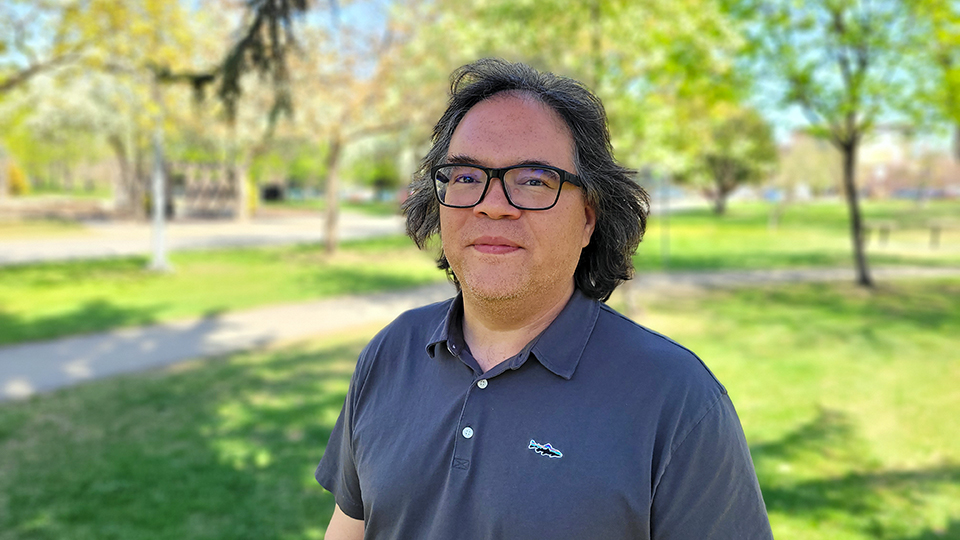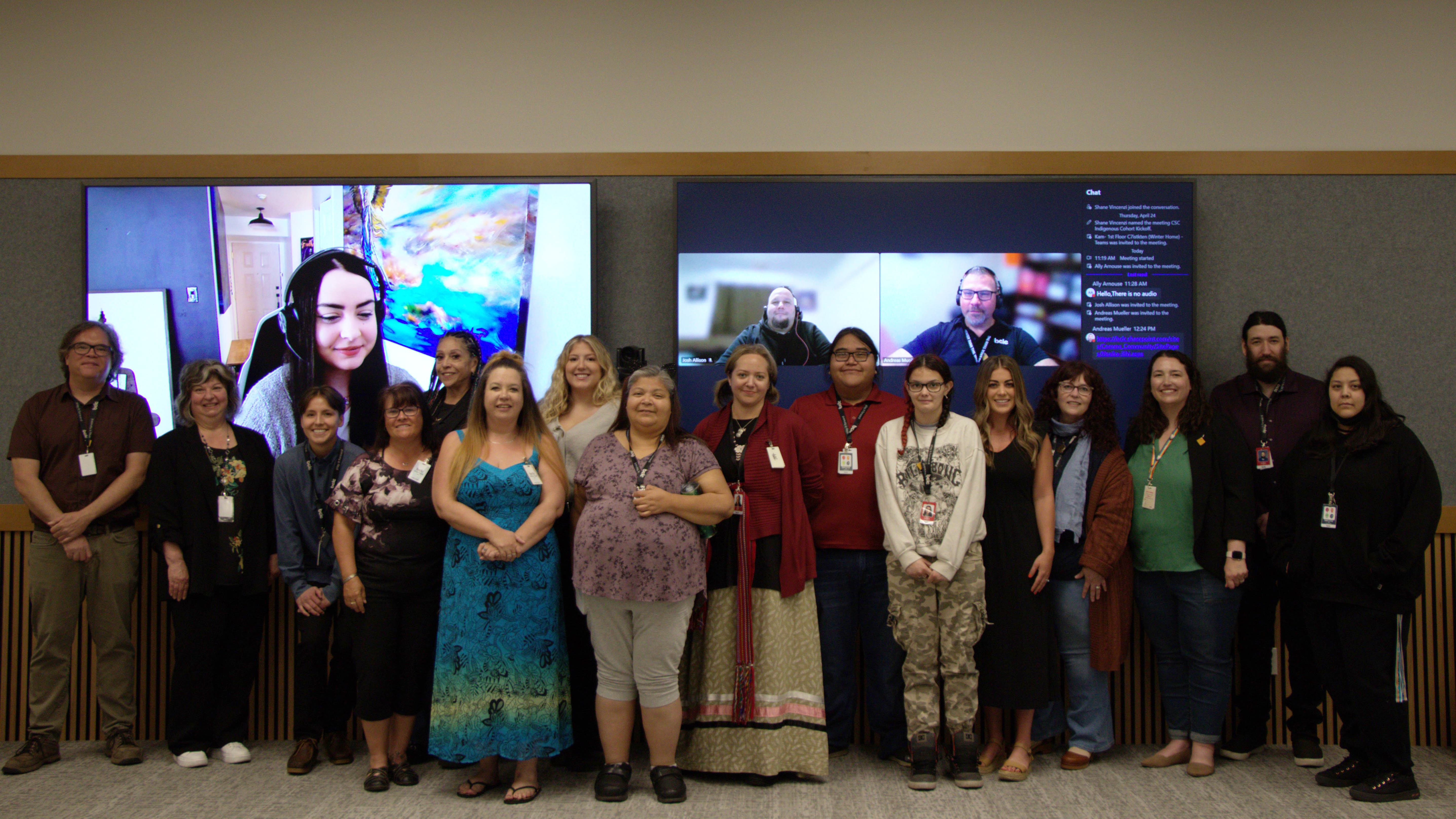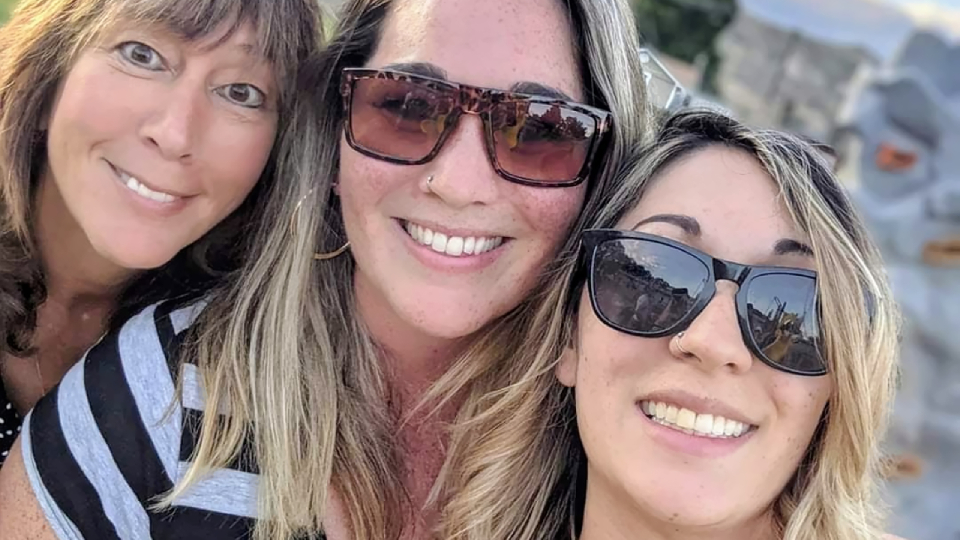In fall of 2022, we welcomed Shane Vincenzi to BCLC as the Senior Manager of Indigenous Relations. This new position will help BCLC create a path to lasting and meaningful reconciliation with Indigenous peoples. It will also support our increased efforts towards positive environmental and social impacts as outlined in our 2022 Environmental, Social and Governance (ESG) report.
Vincenzi is a member of the T’kemlúps te Secwepemc band and grew up in both the City of Kamloops and on the Tk’emlúps reserve. His career has taken him around British Columbia and Alberta to work in the non-profit, natural resources and economic-development sectors for both Indigenous and non-Indigenous corporations and governments. His various roles have involved working to bring Indigenous and non-Indigenous interests together.
What does reconciliation mean to you?
Reconciliation to me is the journey towards the restoration of good relations. But the journey is the important part. If we set up our journey to build genuine, lasting relationships, then these processes and relationships have a better chance of enduring beyond changes in the legal, political and economic landscape.
Where do you think BCLC is on its current journey towards reconciliation?
We are at the beginning of our journey, and that is ok!
BCLC began its reconciliation journey before the implementation of the Declaration on the Rights of Indigenous Peoples Act (DRIPA) in late 2019. We are currently assessing the tools we already have at BCLC and the tools we still need to develop. But whatever we develop needs to align with the United Nations Declaration on the Rights of Indigenous People (UNDRIP), DRIPA, the Truth and Reconciliation Commission of Canada (TRC) Calls to Action, the DRIPA Action Plan and our BCLC Mandate Letter.
Since this is a new role for BCLC, what have been your first steps?
I have taken the opportunity to speak with BCLC employees and leadership. These conversations have helped identify the challenges and opportunities that exist for BCLC, and they've also helped me identify the knowledge needs in our organization. One positive is these conversations have made it clear to me that BCLC employees support this work.
I have also reviewed the acts and calls to action that will guide BCLC towards the development of a Reconciliation Action Plan. From these, I’ve been able to highlight objectives that apply to BCLC where we have the power to affect change.
What are some of your goals in this position?
I want to create an action plan for BCLC that will define our reconciliation road map and will hold BCLC accountable to its commitments.
I want to improve BCLC’s relationships with Indigenous people throughout the province. To do this we need to have consistent, honest communication and work to collaborate on strategies that foster Indigenous reconciliation.
And on a personal note, I want to dispel some myths about Indigenous peoples while promoting some truths. I want BCLC employees to feel that they can approach me without judgement, to ask questions and share ideas.
How do you stay motivated in this type of work?
I focus on success, regardless of how big or small. Our journey towards lasting and meaningful reconciliation will take time, but our success will be the culmination of many smaller successes.
I changed some of the wording in a few of our published reports to better reflect our current understanding of Indigenous people and terminology. BCLC employees continue to build and enhance relationships with our Indigenous partners. I have seen some brilliant and heartfelt land acknowledgements from our employees. These steps are all part of our reconciliation journey.
Building on successes like these, while also helping others create their own successes, and watching the growing momentum is what keeps me motivated.
Do you have any advice for people who want to affect change and support reconciliation?
Be curious, be open, be vulnerable. It can be hard to put yourself in a situation where you may be misunderstood, but personal growth is worth the risk.
Explore new cultural experiences. You might enjoy yourself and there might be bannock.
Read UNDRIP, the TRC 94 Calls to Action, DRIPA, the DRIPA Action Plan and the BCLC 2021 – 2022 Mandate Letter.
Learn about the Indian Act and the consequences of the Act on Indigenous peoples. A good place to start is Bob Joseph’s book ‘21 Things You May Not Know About the Indian Act’.
For organizations, I encourage them to be open to new ideas and concepts of doing business.
The creation of this role was an important next step for BCLC to help us in our work towards Indigenous reconciliation.


